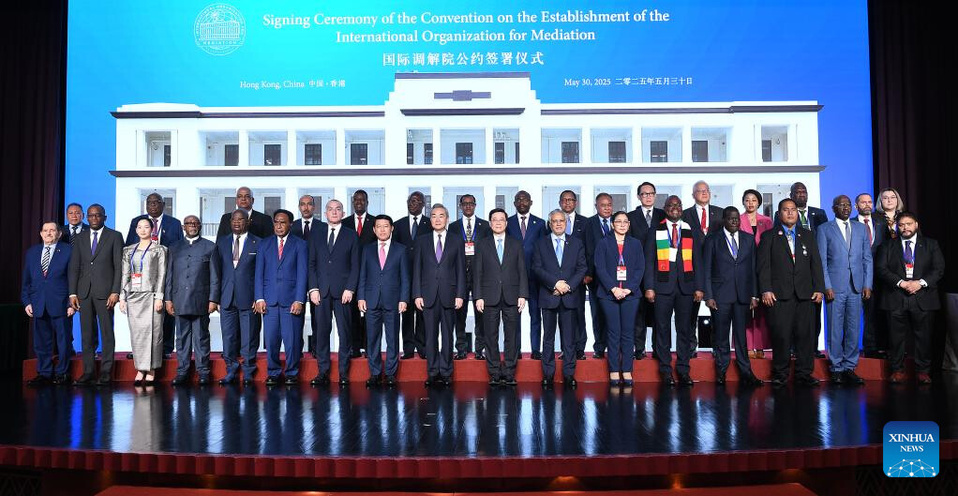UK, US, Australia, Kenya, Tanzania Travelers Concerned As The Middle East Conflict Raises Questions About Airspace Restrictions And Tourism Impact In Africa's Key Travel Markets - Travel And Tour World
Saturday, June 28, 2025

The ongoing conflict in the Middle East is raising concerns for the future of inbound travel to Africa, particularly from key markets such as the UK, US, Australia, Kenya, and Tanzania. While the short-term impact has been relatively limited, the increasing geopolitical instability and airspace restrictions in the Middle East have created uncertainty among travelers and tourism operators. With many international flights to Africa passing through major transit hubs in the UAE, Qatar, and Saudi Arabia, the crisis has the potential to disrupt travel plans, especially for tourists traveling to popular African destinations. As a result, operators are closely monitoring the situation, but for now, there has been no significant shift in booking behavior, though caution prevails as the region assesses the long-term impact.
The ongoing turbulence in the Middle East has undoubtedly raised some concerns within the global travel industry, particularly regarding inbound tourism to regions such as Southern and East Africa. However, while these geopolitical challenges have caused limited short-term disruptions, especially concerning airspace and flight patterns, the broader impact on African travel remains relatively contained. That said, there is growing caution among travelers and operators when it comes to planning future trips, as ongoing uncertainty about regional instability continues to fuel some apprehension in international markets.
Operators specializing in African tourism, especially those working within the region and in key international source markets, are closely monitoring the situation. The Middle East has long been a critical link in long-haul flights to Africa, with major transit hubs like the UAE, Qatar, and Saudi Arabia serving as crucial gateways for travelers bound for destinations such as Kenya, Tanzania, South Africa, and other popular African countries. In addition to being vital transit hubs, the Middle East is increasingly being recognized as a key emerging source market for these African countries, further adding to the complexity of travel patterns across the region.
For travelers hailing from the United States, the UK, Europe, and Australia, the Middle East often serves as a stopover en route to African destinations. Despite the challenges arising from political instability and airspace concerns, most of these travelers have not made any drastic changes to their travel plans. This is primarily due to the fact that, for many, the Middle East is a familiar and heavily relied-upon transit region that connects them efficiently to their final destinations in Africa. With this in mind, it is important to note that while some travelers might reconsider their flight routes or stopover options, there has not been a noticeable or widespread shift in booking behavior, nor have cancellations become a significant concern.
The travel behavior of clients in the US, UK, Europe, and Australia remains largely consistent, despite the volatility in the Middle East. These markets, which consistently send a high volume of tourists to Africa, continue to show resilience. Operators working within the region are reporting that although some travelers might be more cautious when booking flights that transit through the Middle East, many are still choosing to proceed with their plans, reassured by the relative stability of their destinations in Southern and East Africa. This highlights the strength of Africa’s tourism offerings and the enduring appeal of destinations like South Africa, Tanzania, Kenya, and beyond, which are seen as desirable for their natural beauty, wildlife, and cultural experiences.
However, the situation remains fluid, and industry professionals are taking steps to stay ahead of any potential disruptions. Regular communication between travel operators, airlines, and destination management companies (DMCs) is crucial during these times, with each partner working collaboratively to manage the evolving situation. These ongoing discussions aim to ensure that travelers are kept informed about any developments that may affect their itineraries, including changes to flight routes or airspace restrictions in the Middle East. By staying in close contact with key partners, these operators are able to maintain a level of preparedness and continue to offer timely, accurate advice to clients.
At present, there is no widespread panic or major disruption among clients, and the majority of operators in the region report that bookings for African travel are proceeding as planned. This resilience can be attributed to several factors, not least of which is the allure of Africa as a top-tier travel destination. The continent offers diverse experiences that are difficult to replicate elsewhere—luxury safaris, vibrant cities, and remote, pristine environments that continue to captivate tourists from around the world. Despite the geopolitical challenges in the Middle East, Africa’s tourism industry has shown its ability to remain adaptable and resilient, offering travelers an appealing escape.
While short-term disruptions from the Middle East conflict have had an effect on travel patterns, it is important to recognize the broader, long-term trends in the African tourism market. Africa continues to be a growing destination for travelers, with rising interest in exploring new regions, cultures, and experiences. As the situation in the Middle East stabilizes, the strength of Africa’s tourism industry will likely rebound, supported by the ever-present demand for unique and transformative travel experiences.
For now, African tourism operators remain optimistic, albeit cautious. They are adjusting to the changing dynamics, responding to client concerns, and ensuring they are well-positioned to handle any potential issues that may arise. The careful monitoring of the situation, coupled with the continued collaboration between industry partners, will help ensure that Africa maintains its status as one of the world’s most sought-after tourism destinations.
As the Middle East conflict intensifies, travelers from the UK, US, Australia, Kenya, and Tanzania are increasingly concerned about airspace restrictions and the potential impact on tourism in key African markets. The ongoing tensions have raised significant questions about travel disruptions and safety in popular African destinations.
As for the future of bookings, while some caution is expected from travelers as they weigh the risks, the general outlook for African tourism remains positive. With Africa’s incredible tourism offerings, resilient partnerships, and the ongoing adaptation of operators to changing circumstances, the region is poised to continue attracting travelers from around the world, including those from markets that pass through the Middle East. Given the strengthening ties between African countries and the Middle East, the potential for growth remains strong, even amidst geopolitical uncertainties.
«Enjoyed this post? Never miss out on future posts by following us»













